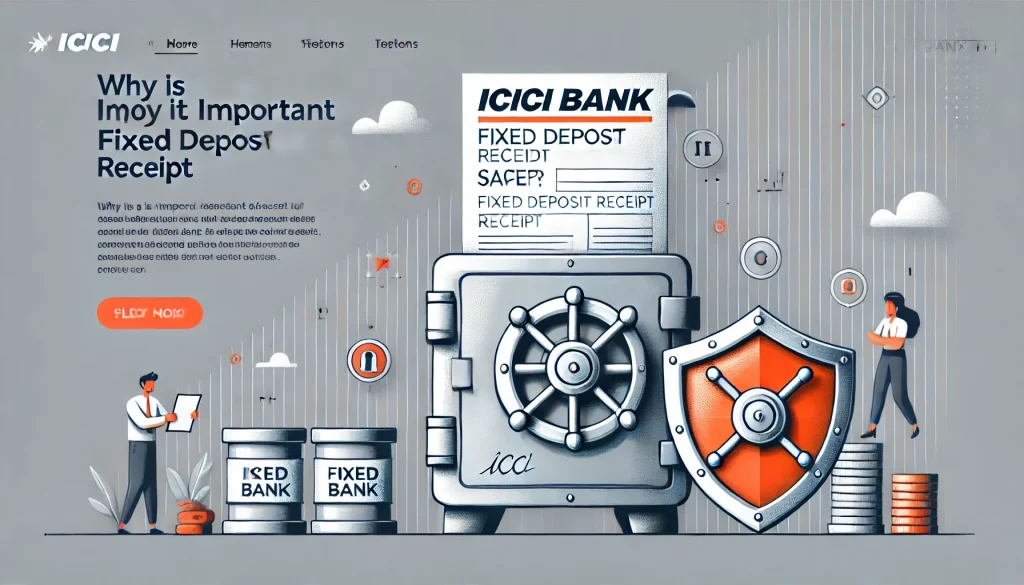
In today’s financial landscape, diversification is the key to safeguarding and growing your hard-earned money. One avenue that offers not just security but also attractive returns is the NRE Fixed Deposit (NRE FD). In this blog, we will delve into the depths of NRE Fixed Deposits, exploring their features, benefits, interest rates, eligibility criteria, and much more. So, let’s embark on this financial journey to uncover the true potential of NRE FDs.
What is NRE Fixed Deposit?
NRE FDs are a type of fixed deposit account offered by Indian banks designed explicitly for NRIs. These deposits are maintained in Indian Rupees but are entirely funded by foreign earnings. The funds can be remitted from the investor’s foreign bank account, and the interest earned and the principal amount can be freely repatriated.
Top 5 NRE Fixed Deposit Interest Rates
| Bank | 1 Year | 1-3 Years | 3-5 Years | 5-10 Years |
|---|---|---|---|---|
| Canara Bank | 7.00% | 6.85% – 7.25% | 6.80% | 6.70% |
| Karur Vysya Bank | 7.00% | 7.00% – 7.50% | 6.25% | 6.25% |
| DCB Bank | 7.25% | 7.25% – 8.00% | 7.75% | 7.75% |
| Yes Bank | 7.50% | 7.50% – 7.75% | 7.00% | 7.00% |
| IndusInd Bank | 7.75% | 7.50% – 7.75% | 7.25% – 7.75% | 7.00% |
Features of NRE Fixed Deposit
NRE Fixed Deposits come with a range of features that make them an attractive investment option:
- Flexible Tenures – Investors can choose from various tenure options, ranging from a few months to several years, allowing them to align their investments with their financial goals.
- Tax Benefits – Interest earned on NRE FDs is tax-free in India, making them a highly tax-efficient investment option for NRIs.
- Automatic Renewal – Many banks offer the convenience of automatic renewal, ensuring that your funds continue to grow seamlessly.
- Joint Accounts – NRIs can open joint NRE FD accounts with other NRIs, providing flexibility for shared financial goals.
Benefits of NRE Fixed Deposits
There are various advantages of investing in NRE FDs:
- Risk Mitigation – NRE FDs offer stable returns, protecting your funds from market fluctuations and economic uncertainties.
- Repatriation – Both the principal and interest earned can be freely repatriated to the investor’s foreign bank account, making it easy to manage global finances.
- Currency Gains – In the case of currency appreciation, NRIs can benefit from potential gains when converting the repatriated funds to their local currency.
- Loan Collateral – NRE FDs can also serve as loan collateral, providing access to credit facilities if needed.
Who Can Invest in NRE Fixed Deposit?
NRE Fixed Deposits are designed for a specific category of individuals:
- NRIs and PIOs: Non-Residential Indians and Persons of Indian Origin are eligible to open NRE FD accounts.
- HUFs and Corporates: Hindu Undivided Families (HUFs) and certain corporates can also invest in NRE FDs under specific conditions.
Conclusion
Regarding investment options, NRE Fixed Deposits are a reliable and advantageous choice for NRIs seeking secure returns on their foreign earnings. With their flexibility, tax benefits, and potential for currency gains, NRE Fixed Deposits offer a compelling avenue for wealth accumulation. Consider diversifying your investment portfolio with NRE FDs and unlock the power of financial stability.
FAQs
Opening an NRE FD account is a straightforward process. You can do it by visiting your preferred Indian bank’s branch or through their online banking platform.
Yes, most banks allow premature withdrawals from NRE FDs; however, there might be penalties and reduced interest rates associated with it.
The tax treatment of NRE Fixed Deposit interest in your home country depends on its tax laws. It’s recommended to consult a tax professional to understand your obligations.
Yes, many banks offer loan facilities against Fixed Deposits, providing you with additional financial flexibility.
Yes, you can hold an NRE FD jointly with another NRI. However, it’s essential to understand the rules governing joint accounts.
How do I repatriate funds from my NRE FD?
Repatriating funds from your NRE FD is simple. You can transfer the funds back to your foreign account through authorised banking channels.
Disclaimer
This article is solely for educational purposes. Stable Money doesn't take any responsibility for the information or claims made in the blog.


